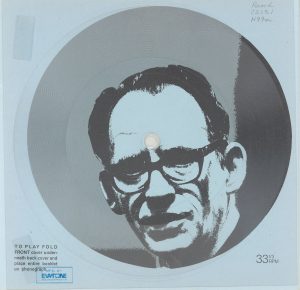“In Hendersonville… Today I am in comparative affluence, but Monday and Tuesday I had two tins of potted meat, three oranges and a box of Uneedas and two cans of beer… and when I think of the thousand meals I’ve sent back untasted in the last two years. It was fun to be poor — especially if you haven’t enough liver power for an appetite. But the air is fine here, and I liked what I had — and there was nothing to do about it anyhow….
“But it was funny coming into the hotel and the very deferential clerk not knowing that I was not only thousands, nay tens of thousands in debt, but had less than 40 cents cash in the world and probably a deficit in the bank….
“The final irony was when a drunk man in the shop where I bought my can of ale said in voice obviously intended for me, ‘These city dudes from the East come down here with their millions. Why don’t they support us?’ ”
— F. Scott Fitzgerald, writing in his diary, autumn 1936


